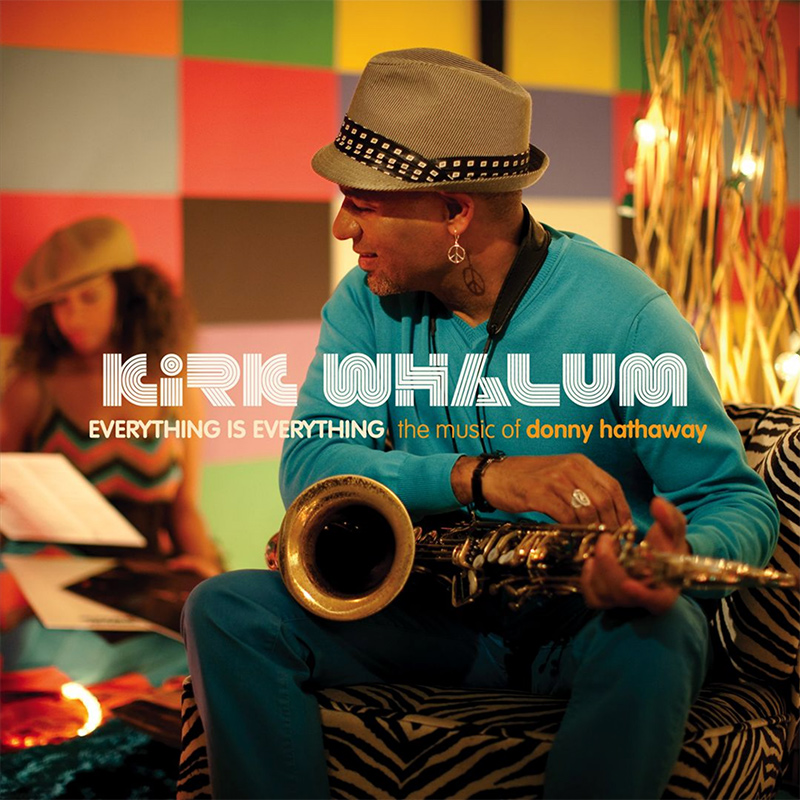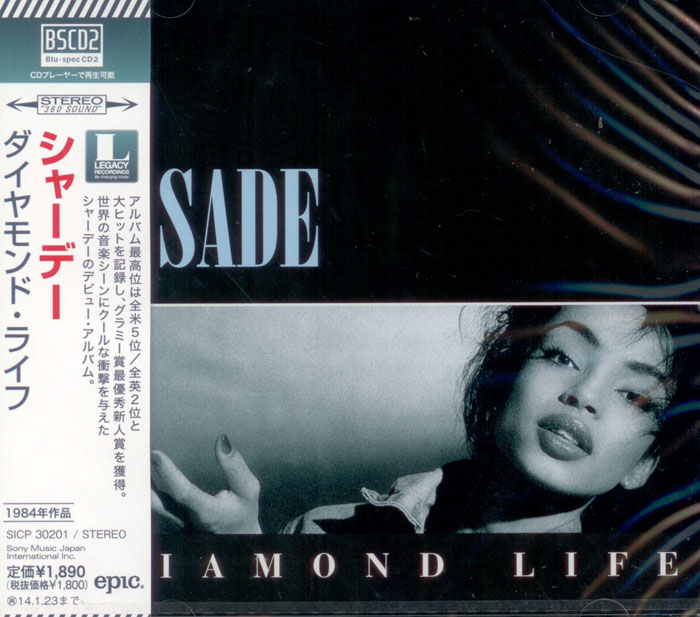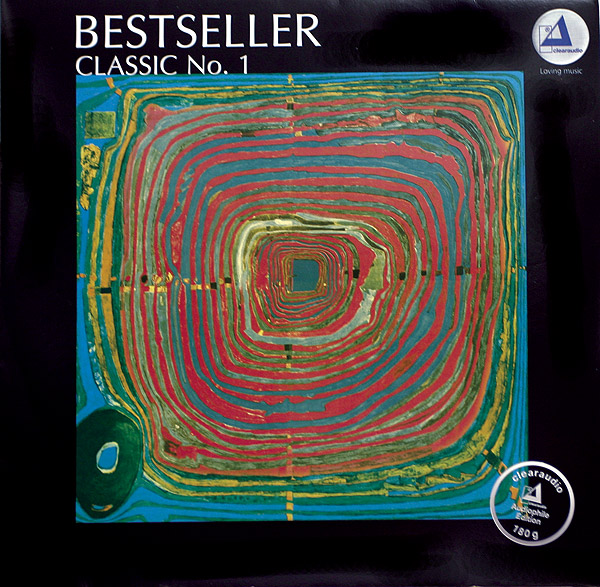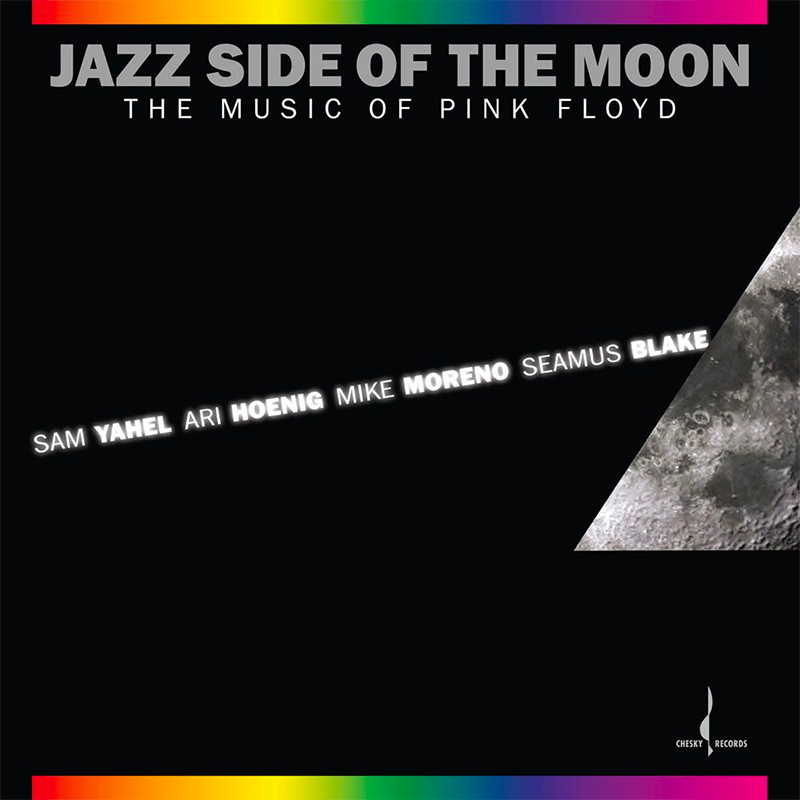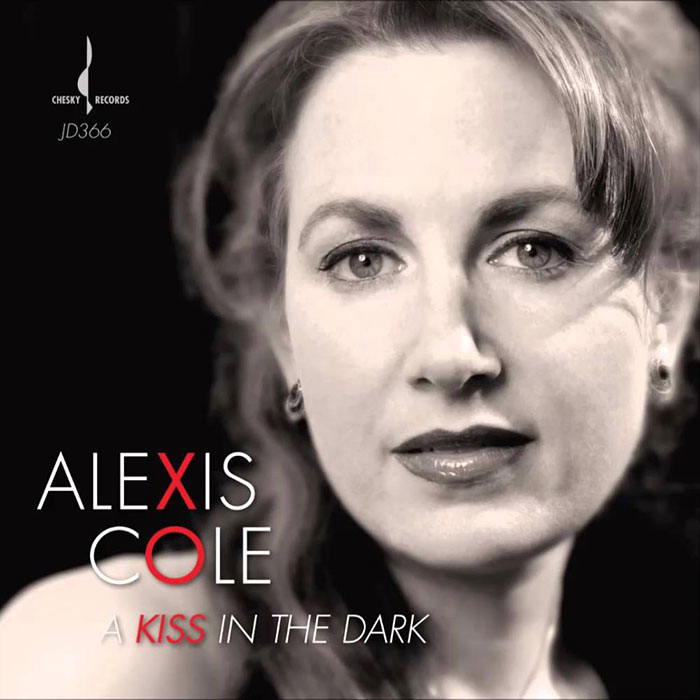Logowanie
Dziś nikt już tak genialnie nie jazzuje!
Bobby Hutcherson, Joe Sample
San Francisco
SHM-CD/SACD - NOWY FORMAT - DŻWIĘK TAK CZYSTY, JAK Z CZASU WIELKIEGO WYBUCHU!
Wayne Shorter, Freddie Hubbard, Herbie Hancock, Ron Carter, Elvin Jones
Speak no evil
UHQCD - dotknij Oryginału - MQA (Master Quality Authenticated)
Chesky! Niezmiennie perfekcyjny
Winylowy niezbędnik
ClearAudio
Double Matrix Professional - Sonic
najbardziej inteligentna i skuteczna pralka do płyt winylowych wszelkiego typu - całkowicie automatyczna
Kirk Whalum
Everything Is Everything - The Music Of Donny Hathaway
- Kirk Whalum - Everything Is Everything - The Music Of Donny Hathaway
- 01. Giving Up (5:15)
- 02. Someday We'll All Be Free (6:04)
- 03. We're Still Friends (5:13)
- 04. Love, Love, Love (3:55)
- 05. A Song For You (6:14)
- 06. Valdez In The Country (3:59)
- 07. Je Vous Aime (I Love You) (4:42)
- 08. You Had To Know (5:12)
- 09. Tryin' Times (7:32)
- 10. We Need You Right Now (5:56)
- 11. Voices Inside (Everything Is Everything) (5:39)
- Kirk Whalum - saxophone
The breadth and depth of Kirk Whalum’s Everything Is Everything: The Music Of Donny Hathaway on Rendezvous Music/Mack Avenue Records reflects everything he has been and is as an artist, and bumps it up a notch for a breathtaking, beautiful and breakthrough excursion. Kirk reveals, “It is the first time you’ll hear me with a chamber orchestra.” From soothing strings to screamin’ guitars, from streetwise city funk, blues and gospel charm to the romp and rest of country landscapes, right into the recesses of heart and soul, Whalum and company’s creativity never lets up. Whalum recently released The Gospel According To Jazz, Chapter III — the third installment on his award winning series —prominently featuring Donny’s daughter Lalah. On the heels of one Hathaway collaboration, producer Matt Pierson proposed another. Kirk recounts, “Matt had a really tight concept. Also, Gil Goldstein and John Stoddart’s arrangements were axiomatic to this record.” Pierson, the visionary behind Whalum’s No. 1 album For You, knows that as celebrated as Whalum is for his original compositions, he is extraordinarily gifted at rendering graceful, incisive and soulful interpretations of other artists’ classic works. The album’s ensemble of Jef Lee Johnson on electric guitar, John Stoddart on keyboards, Christian McBride on bass and Lil’ John Roberts on drums was foundational. “I was so thrilled,” says Kirk. “We got in the studio. We all realized that everyone in that room was from Philadelphia but me. There is something about that Philly/Memphis connection.” Guest appearances from Jeff Golub on guitar, Rick Braun on flugelhorn and the inimitable Robert Randolph on pedal (sacred) steel, as well as vocals from Hathaway’s daughter Lalah and R&B chart-topper Musiq Soulchild, augment the super-group along with an orchestra under the direction of Goldstein and Stoddart. Added to the mix are master organist Shedrick Mitchell (Maxwell, Whitney Houston), acoustic guitar virtuoso Larry Campbell (Bob Dylan, Levon Helm) and studio MVP percussionist Bashiri Johnson. On Everything Is Everything: The Music Of Donny Hathaway, each song was either written or recorded by Donny during his brief career. Although many artists have covered Hathaway, Whalum’s roots in gospel and the church, his understanding of vocal music and ability to translate that instrumentally, as well as his resonance with Donny’s hope and vision make this not only a tribute but also a spiritual collaboration. The album opens with a delightfully spacious arrangement of “Giving Up,” displaying tasty percussion and whining, wailing horns countering Whalum’s evocative sax. The hopeful, soothing “Someday We’ll All Be Free” follows. Gil Goldstein’s masterful arrangement and Kirk’s rhapsodizing paint a dreamy landscape expressing both the longing for and the reality of that place of freedom. Next Whalum brings moody warmth to “We’re Still Friends,” and Hathaway’s depth of soul finds sympathetic and complementary vocal styling from neo-soul innovator Musiq Soulchild, who has made it no secret that Donny is a primary influence, not only on his vocal style but also on his overall artistic vision. Spunky, smooth, playful and overflowing with (as the title suggests) “Love, Love, Love,” Whalum’s and Braun’s musical exchange alternates between dialogue and unison, mirroring an intriguing romance. Whalum enthuses, “It’s a happy, uplifting song. The thing I love about playing with Rick: we’re both deeply influenced by soul and bebop, and there is a natural symbiosis based on our musical influences.” Goldstein’s expert arrangement of “A Song For You” hooks the listener immediately with an orchestrated treatment of Hathaway’s trademark descending piano arpeggios. Although this is Hathaway’s signature song (penned by rocker Leon Russell) the melodic, lyrical beauty and power is essential Whalum. The orchestration, strategic space and plaintive cry of the sax make this a mandatory addition to your romance collection. Whalum calls "Valdez In The Country” (featuring Jeff Golub on guitar) “the quintessential hit instrumental song. The song crosses all those boundaries between ‘art music’ and real jazz and R&B.” Describing the percolating joy fest he adds, “The song has a happy melody and Jeff naturally adds his skanky, Memphis, New York rock ’n’ roll guitar vibe.” "Je Vous Aime (I Love You)" reflects Kirk’s love of everything French and returns to romance with a bit of gospel/blues flavor, adding some sacred space and transcendent power. “As I played I thought both of how precious it is to have someone who loves you enough to ‘stand by your side,’ as my wife Ruby's done for me, and even how much more precious it is to know that the Savior promised that he would never ‘leave or forsake’ us. When you sum up what it means to be ‘alive,’ it means family and community. Jesus hung in there with me. He held on to my hand. And I just want to say ‘I love you.’ That’s the sum total of my music. That’s the message…” Another emotional situation centered on Hathaway’s daughter. “Lalah has generally avoided performing her father’s songs,” discloses Pierson, “but since she and Kirk have such a strong connection, I felt that it was important to have her involved in the project. The key was to find a song that he hadn’t sung himself, preferably something he wrote for a female vocalist. Thankfully Donny produced the group Cold Blood back in the 1970s and wrote ‘You Had To Know’ to feature vocalist Lydia Pense. It felt like a perfect song for Lalah.” Whalum adds, “When we put it out there, she said yes and I’m so glad she did. I dedicated the song to Ruby. Definitely Lalah’s performance of it is so sensitive and beautiful and nostalgic.” “Tryin’ Times” is sanctified funk replete with rockin’ gospel/blues fusion. Robert Randolph’s pedal steel alongside Kirk’s soulful sax is a musical marriage made in heaven. “We Need You Right Now,” one of Hathaway’s many conversations with God, is personal and powerful prayer poetry. “There’s a fine line between sacred and secular,” intones Whalum, “and Donny blew that away. I forgot I was in a studio; I wandered off to a corner just worshiping God with a horn.” The album concludes with the title track which is basically a mash-up of three songs: “Voices Inside (Everything Is Everything)” from Donny’s 1970 debut recording; Sly Stone’s influential 1973 track “In Time”; and Lauryn Hill’s 1998 hit “Everything Is Everything.” With Jef Lee Johnson and Shedrick Mitchell working the Sly guitar hook throughout plus Whalum’s tenor, Braun’s muted trumpet, Randolph’s crying pedal steel, Campbell’s countrified National steel guitar and Stoddart’s soulful vocal adlib, it’s a party. Pierson explains, “The listener is transported to a higher musical plane, feeling the optimism, joy and emotional immediacy that defined the music of Donny Hathaway.” Kirk’s primal connection to soul comes naturally. He was born in Memphis, musical home of Otis, Sam and Elvis…in that order. His history there is part of what connects him so deeply to the music of Donny Hathaway. “If you think about how I got started, it was the live gospel instrumental experience there in my home church where my Dad was pastor.” The R&B, blues, pop and jazz that imbue Kirk’s expression are obviously part of the Memphis legacy and Kirk made the jazz connection when he was in high school. He received a music scholarship from Texas Southern University in Houston, where he formed his own band, playing original compositions on the Texas club circuit. After opening for Bob James in Houston one night in 1984 Whalum was invited to New York by the celebrated pianist to appear on his album 12. Whalum signed with Columbia shortly thereafter, releasing five albums for the label: Floppy Disk (1985), And You Know That (1988), The Promise (1989), Caché (1993) and In This Life (1995). While still there he collaborated with Bob James on the 1996 Warner Bros. release Joined At The Hip, which won Kirk his first Grammy® nomination. In 1997 Whalum signed to Warner Bros. Records and released his solo debut for the label, Colors. It was during that transitional time that The Gospel According To Jazz concept gained steam and the first GATJ was released in October of 1998, the same year he released For You, his collection of soul and R&B covers, which yielded four Top 10 hits. In 2000 Whalum released Hymns In The Garden which received a Grammy nomination for best Pop Instrumental Album. Unconditional, also released that year, generated three Grammy nominations over two years for Pop Instrumental Song (2001 and 2002) and Pop Instrumental Album (2001). Unconditional captured the No. 1 spot on the jazz charts, his fourth album to do so, and generated a No. 1 radio hit, “Now ’Til Forever.” In 2002 The Gospel According To Jazz, Chapter II and The Christmas Message were released, ultimately garnering two more Grammy nominations. His last album on the Warner label Into My Soul (2003) took Kirk back to his Memphis roots. Transitioning to Rendezvous, he teamed up with Pierson as producer for Kirk Whalum Performs The Babyface Songbook (2005) and followed with Roundtrip (2007), both catapulting to No. 2 on the Billboard Contemporary Jazz Chart—the latter garnering him his eighth Grammy nomination. The Gospel According To Jazz, Chapter III, released earlier this year, began the Hathaway connection with Lalah featured on a number of songs. In the course of his career he has graced the recordings and stage performances of the preeminent vocalists, instrumental artists and soundtracks of our time including the stunning sax solo on “I Will Always Love You,” performed by Whitney Houston in The Bodyguard. Whalum has lent his lyrical phrasing and melodic artistry to Babyface, Luther Vandross, Nancy Wilson, George Benson, Bebe & Cece Winans, Barbra Streisand, Vince Gill, Michael McDonald and Quincy Jones, among many others, with well over 100 recordings to his credit. Because of his love for working with young musicians, his tenure as artist in residence (the very first) at Stax Music Academy in Memphis since 2006 has been particularly meaningful. He was subsequently named the Varnell Artist in Residence at Memphis Theological Seminary, where he is finishing his Masters degree. His relationship with Stax has deepened and he was recently appointed as CEO of both the Stax Museum and Music Academy, and hopes to serve as an ambassador around the world for the legacy of soul music it represents. In many ways, Everything Is Everything: The Music Of Donny Hathaway is part of Whalum’s connection and commitment to that heritage that continues to inform and shape the world’s musical expression. The elegance, intelligence and depth of his Mack Avenue debut are a tribute to one of America’s musical treasures and a testament to Whalum’s expansive and unquenchable artistry and soul.


































